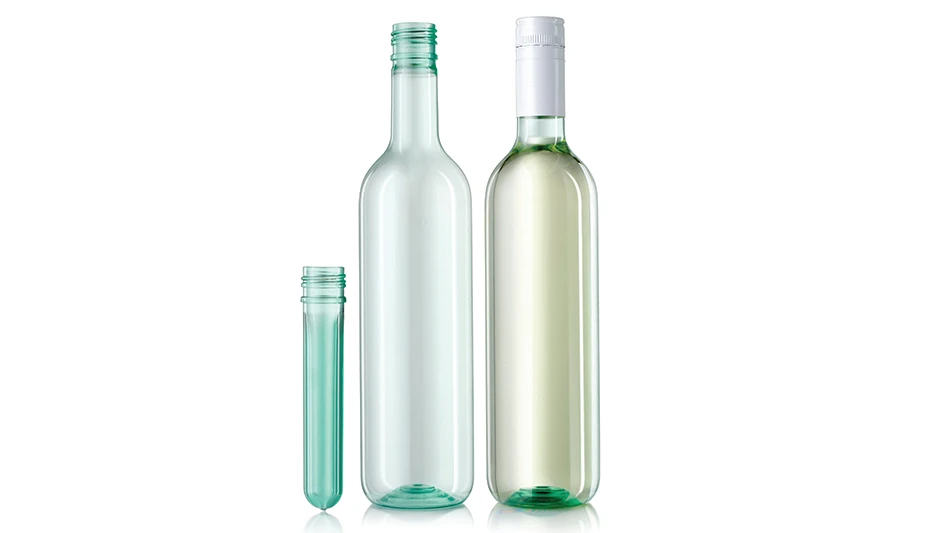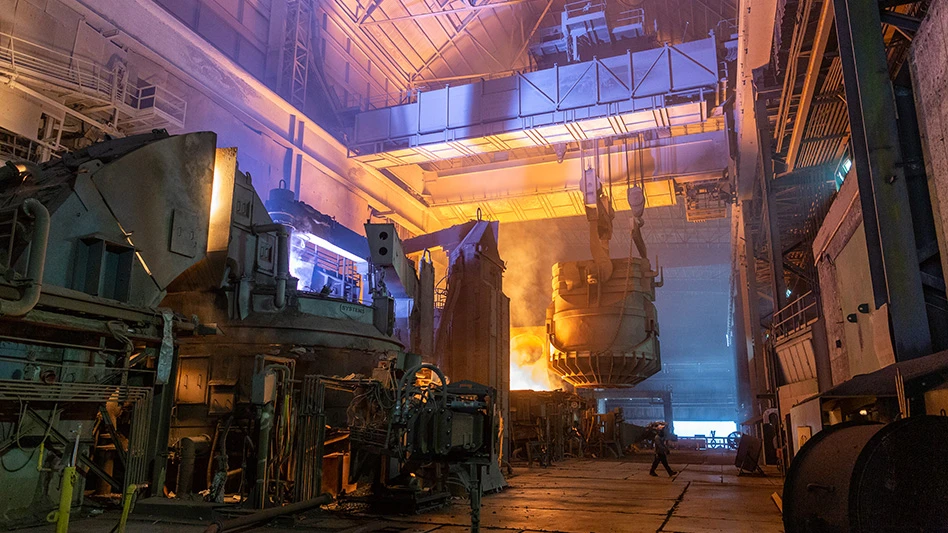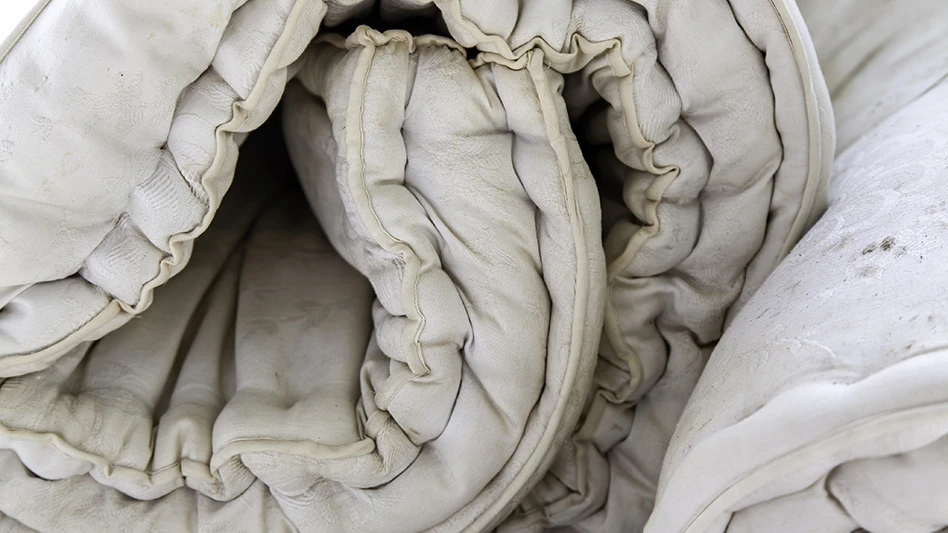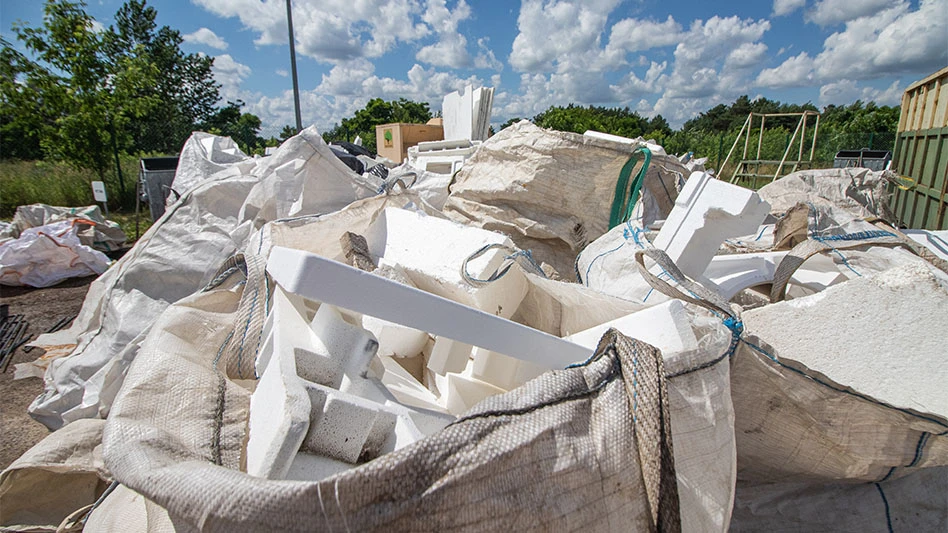
Image courtesy of Alpla
Alpla, an Austria-based packaging producer, has launched a recyclable wine bottle made of polyethylene terephthalate (PET).
The bottle weighs approximately one-eighth of a glass bottle, reduces carbon emissions by up to 50 percent and allows for price savings of up to 30 percent. Alpla says the bottle can be made entirely of recycled PET (rPET) and is now available in 0.75-liter and 1-liter sizes. It already is being used in Austria by pilot customer and development partner Wegenstein.
RELATED: Alpla and Tönissteiner release rPET bottle
The first white wine bottles belonging to the Wegenstein winery recently went into circulation in the Austrian wine market, making them part of the Europe-wide bottle-to-bottle loop. Alpla notes the bottle reduces carbon consumption by 38 percent compared to the glass alternative, even without rPET content, and plans to manufacture several million units per year from 2025, including bottles made entirely of rPET.
“PET is light, unbreakable and recyclable, and can be molded with little energy needed, making the plastic the ideal packaging solution,” says Daniel Lehner, global sales director of food and beverage at Alpla. “With it, winemakers can improve their environmental footprint and lower their costs. The plastic packaging meets all the quality requirements, is available as a transparent or a green bottle and is suitable for all types of wine.”
The company says lower material consumption and energy-saving manufacturing can reduce carbon consumption, with the use of rPET further increasing that reduction. Alpla says that even with 30 percent rPET, 43 percent of carbon consumption is saved, while the ecological footprint of the solution made of 100 percent rPET is halved at 50 percent. The rPET is provided by Alpla from its recycling plants.
The bottle works with conventional metal screw caps and is compatible with winemakers’ bottling lines. Alpla says Wegenstein fills the PET bottles on the same bottling lines as its glass bottles.
“The bottle has been perfectly tailored to the bottling and shipment processes. The close cooperation with the Wegenstein team significantly sped up the market launch,” Alpla Project Manager Sebastian Rosenberger says.
Herbert Toifl, managing director of the Wegenstein winery, says the bottle lives up to what it promises. “It is visually appealing, ensures our quality and is practical. We are making an innovative offer to consumers who care about our environment and our climate.”
Latest from Recycling Today
- Alpla calls 2024 year of recycling growth
- Altilium says agreement puts it on lithium recycling path
- NWRA, SWANA partner to address lithium-ion batteries
- Corinth, Texas, renews waste contract with CWD
- Fresh Perspective: Sarah Zwilsky
- Plastics Industry Association announces leadership changes
- QCC celebrates 50th anniversary
- Venture Metals acquires 2 nonferrous processors





